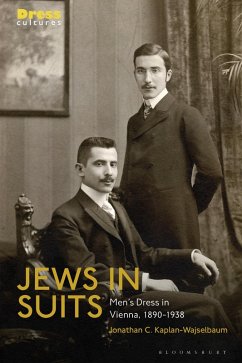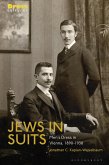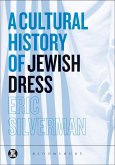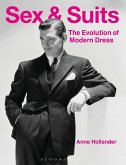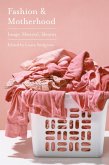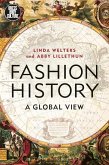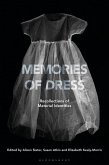Shortlisted for the Leslie and Sophie Caplan Award for Jewish Non-Fiction
Surviving photographs of Jewish Viennese men during the fin-de-siècle and interwar periods - both the renowned cultural luminaries and their many anonymous coreligionists - all share a striking sartorial detail: the tailored suit. Yet, until now, the adoption of the tailored suit and its function in the formation of modern Jewish identities remains under-researched.
Jews in Suits uses a rich range of written and visual sources, including literary fiction and satire, 'ego-documents', photography, trade catalogues, invoices, and department store culture, to propose a new narrative of men, fashion, and their Jewish identities. It reveals that dressing in a modern manner was not simply a matter of assimilation, but rather a way of developing new models of Jewish subjectivity beyond the externally prescribed notion of 'the Jew'. Drawing upon fashionable dress, folk costume, religious dress, avant-garde, oppositional dress, typologies which are often considered separate from one another, it proposes a new way of reading men and clothing cultures within an iconic cultural milieu, offering insights into the relationship of clothing and grooming to the understanding of the self.
Surviving photographs of Jewish Viennese men during the fin-de-siècle and interwar periods - both the renowned cultural luminaries and their many anonymous coreligionists - all share a striking sartorial detail: the tailored suit. Yet, until now, the adoption of the tailored suit and its function in the formation of modern Jewish identities remains under-researched.
Jews in Suits uses a rich range of written and visual sources, including literary fiction and satire, 'ego-documents', photography, trade catalogues, invoices, and department store culture, to propose a new narrative of men, fashion, and their Jewish identities. It reveals that dressing in a modern manner was not simply a matter of assimilation, but rather a way of developing new models of Jewish subjectivity beyond the externally prescribed notion of 'the Jew'. Drawing upon fashionable dress, folk costume, religious dress, avant-garde, oppositional dress, typologies which are often considered separate from one another, it proposes a new way of reading men and clothing cultures within an iconic cultural milieu, offering insights into the relationship of clothing and grooming to the understanding of the self.

